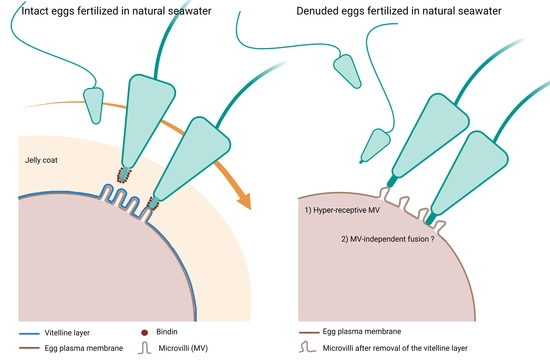Table of Contents
Introduction
- The recognition of an egg’s extracellular coat by a sea urchin sperm is a critical species-specific binding event that involves multiple stages.
Species-specific Recognition Events
- The first set of species-specific recognition events includes sperm attraction, activation, and acrosome reaction when the sperm comes into contact with the egg’s jelly coat.
Binding of Sperm and Egg
- Once the sperm penetrates the egg jelly and its acrosomal process contacts the surface of the egg, a second critical species-specific binding event occurs.
- The acrosomal protein responsible for this recognition is called bindin, a 30,500 Da protein that is insoluble and isolated from the acrosome of Strongylocentrotus purpuratus.
- Sperm bindin is capable of binding to the dejellied eggs of the same species, while not binding to those of a different species.
Biochemical Studies on Bindin
- Biochemical studies have confirmed that bindins of closely related sea urchin species have different protein sequences, indicating the existence of species-specific bindin receptors on the egg vitelline envelope.
- A 350 kDa glycoprotein that serves as a bindin receptor has been isolated from sea urchin eggs and is thought to be aggregated into complexes on the vitelline envelope.
- The bindin receptor on the egg vitelline envelope recognizes the protein portion of bindin on the acrosome in a species-specific manner, resulting in species-specific recognition of sea urchin gametes.
- Closely related sea urchin species have divergent bindin receptors, and eggs will only adhere to the bindin of their own species.
Evolution of Gamete Recognition Proteins
- Bindin and other gamete recognition proteins are among the fastest evolving proteins known and may have diverged significantly, even when closely related urchin species have near-identity of every other protein.
Conclusion
- The recognition of the egg’s extracellular coat by a sea urchin sperm involves multiple species-specific binding events that occur at the levels of sperm attraction, activation, acrosome reaction, and sperm adhesion to the egg surface. Bindin plays a critical role in this process and is a fast evolving protein.
